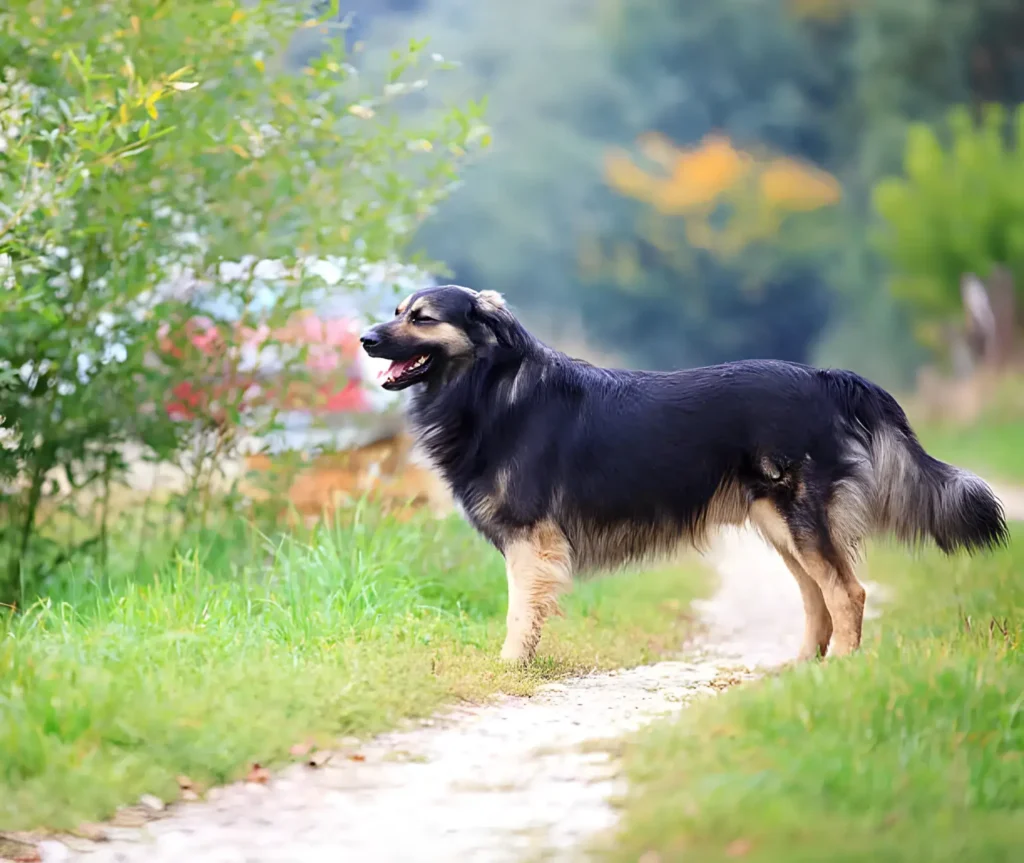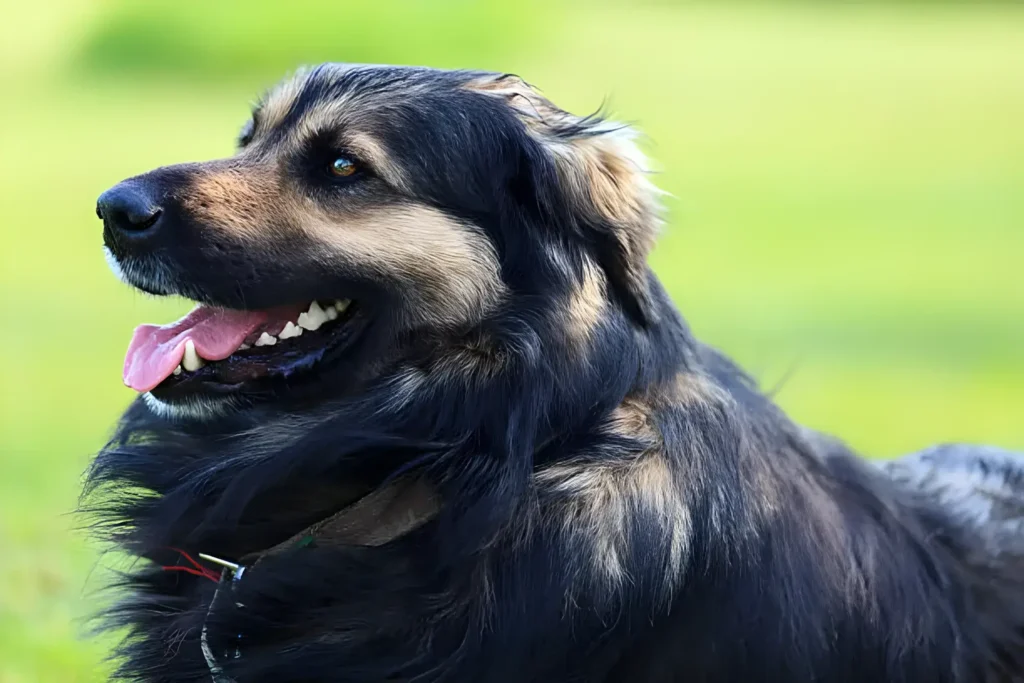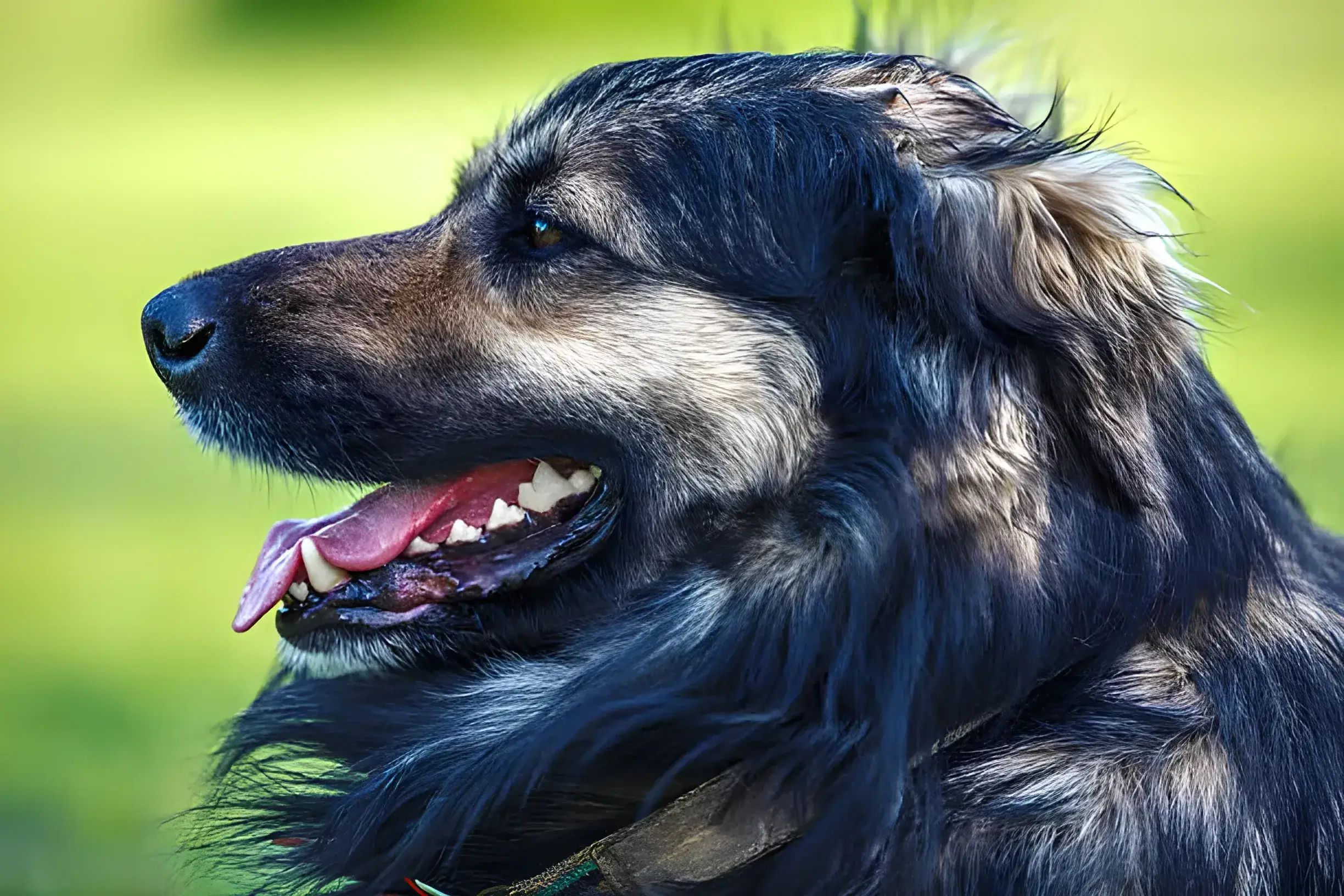The Karst Shepherd is a powerfully built, intelligent livestock guardian breed originating from the Karst Plateau of Slovenia. These rugged dogs are fiercely protective of their home and family, yet possess a strong independent streak that demands experienced owners.
History: Shaped by a Harsh Landscape
The Karst Shepherd’s roots lie in the harsh limestone landscapes of Slovenia and Croatia. For centuries, these dogs were indispensable to shepherds, guarding flocks against predators like wolves and bears. This unforgiving environment shaped the Karst Shepherd into a resilient, resourceful, and deeply loyal breed.
Appearance: A Powerful and Rustic Build
The Karst Shepherd is a medium-to-large dog with a muscular, athletic build. They have a thick, weather-resistant double coat that’s typically iron gray in color, though variations may exist. Their wedge-shaped head and strong jaws underscore their protective nature, balanced by intelligent, expressive eyes.
Temperament: Devoted, Alert, but Headstrong
Protectors by Nature: Karst Shepherds are naturally wary of strangers and exceptionally protective of what they consider theirs. Early socialization and clear boundaries are essential to prevent over-guarding behaviors.
Intelligence and Independence: These dogs are highly intelligent, but their problem-solving skills can sometimes verge on stubbornness. Positive reinforcement training is a must, with an emphasis on consistency and patience.
Family Loyalty: With their “pack,” Karst Shepherds are incredibly affectionate and loyal. However, they bond deeply with a select few and may not be overly enthusiastic with everyone.
Training and Exercise: A Job to Do

Training is Essential: Karst Shepherds require experienced owners committed to ongoing, positive training. Focus on building trust, clear communication, and channeling their instinctive intelligence into constructive activities.
Mental and Physical Stimulation: This breed needs a significant amount of both exercise and mental stimulation. Long hikes, dog sports like agility or scent work, and puzzle toys will help prevent boredom and destructive behaviors.
Not for First-Time Owners: The Karst Shepherd’s independent streak and potential for guarding behaviors make them generally unsuitable for first-time dog owners.
Health: A Generally Robust Breed
Karst Shepherds are relatively healthy dogs, but responsible owners should be aware of potential concerns:
- Hip and Elbow Dysplasia: As with many larger breeds, joint health is a focus. Choose a breeder who tests for these conditions.
- Eye Issues: Some eye problems may occur within the breed.
- Overall Robustness: These hardy dogs were built for tough conditions, and with good care, can enjoy long, healthy lives.
Finding a Reputable Breeder
Due to their rarity and specialized needs, finding a reputable Karst Shepherd breeder is crucial. Look for breeders committed to health testing, responsible breeding practices, and the preservation of the breed’s working temperament.
The Karst Shepherd: From Traditional Guardian to Family Companion
These powerful dogs were born and bred to protect livestock, but with the right understanding, they can find fulfilling lives in modern homes.
Staying Active in a New World: Karst Shepherds still need outlets for their working instincts. Channel their energy through hikes, runs, training sessions, and canine sports like agility or nose work.
Adapting to a Changing Landscape: In urban or suburban settings, be mindful of their guarding tendencies. Early socialization and consistent training establish appropriate boundaries in a busy environment.
Ideal Homes: Having a secure yard for playtime and zoomies is vital for a happy Karst Shepherd. Apartment life can be restrictive for this large, active breed.
Breed Organizations and Resources

- Slovenian Shepherd Dog Club: Slovenski ovčarski klub: https://www.kinoloska.si/en/home/ (Slovenian Language, but may have resources or breeders listed)
- Karst Shepherd Rescue of North America (Facebook Group): https://www.facebook.com/GSRInc/
Owner Testimonials
“My Karst Shepherd, Luna, is the most loyal and protective dog I’ve ever known. She’s fantastic with our kids, but always alert when someone new comes to the door. We take her hiking every weekend, and she loves having a job to do.” – Sarah H., Montana
“Training our Karst Shepherd, Bear, was definitely a challenge, but so rewarding. He’s incredibly intelligent and learns quickly, but can also be stubborn. Positive reinforcement and a lot of patience are key. Now, he’s an amazing companion and loves competing in agility trials.” – John M., California
Is a Karst Shepherd Right for You?
The Karst Shepherd is an exceptional breed for the right home, but their intensity is not for everyone. Consider:
- Experience Level: Owners need prior experience with independent, guardian-type breeds.
- Activity Level: Can you provide ample physical and mental stimulation?
- Living Environment: Karst Shepherds do best with ample space and secure fencing. Apartment living is not ideal.
Conclusion
The Karst Shepherd is a magnificent breed with a rich history and a uniquely devoted nature. For those committed to understanding and respecting their independent character, the Karst Shepherd offers an incredibly rewarding bond built on trust, loyalty, and adventure.
The photo featured below the post headline is Credit: borchee/istockphoto
I hope you find this post helpful and informative. If Yes’ feel free to share it with your friends!
Frequently Asked Question
Are Karst Shepherds good with children?
Properly socialized Karst Shepherds can be gentle with their children, but require careful supervision around others. Their guarding instincts can be strong, and any dog, regardless of breed, should never be left unsupervised with kids.
Do Karst Shepherds shed?
Yes, their double coat means they shed moderately throughout the year, with heavier shedding periods seasonally. Regular brushing is essential for coat management.
Are Karst Shepherds aggressive?
Karst Shepherds are naturally protective and alert, but with proper training and socialization, they should not be overly aggressive. Early exposure to different people and situations is key in preventing excessive guarding behaviors.
What are the exercise requirements of a Karst Shepherd?
These are not sedentary dogs! They require substantial daily exercise through long walks, hikes, or energetic play sessions.
Are Karst Shepherds suitable for apartments?
Generally, no. Their need for space and potential barking due to guarding instincts make them better suited to houses with secure yards.
Do Karst Shepherds experience separation anxiety?
Their deeply loyal nature can make some Karst Shepherds prone to separation anxiety. Crate training and providing plenty of mental stimulation when you’re gone can help.
What is the typical lifespan of a Karst Shepherd?
On average, a healthy Karst Shepherd lives between 12 and 14 years.
What is the average weight of a Karst Shepherd?
Typical weight ranges from 55 to 90 pounds, with males generally falling on the larger end of the scale.
What’s the typical price range for a Karst Shepherd puppy?
Prices fluctuate based on the breeder, pedigree, and region. Budget for around $1000 to $2500, though puppies from prestigious show lines may cost more.
Can Karst Shepherds get along with other animals?
With patience and proper introductions, some Karst Shepherds learn to live peacefully with cats or dogs. However, it’s important to remain aware of their inherent protective instincts and supervise interactions.
How do I locate a responsible Karst Shepherd breeder?
Do extensive research. Prioritize breeders focused on health testing, adhering to breed standards, and maintaining the Karst Shepherd’s working temperament. The Karst Shepherd Club of North America is an excellent place to begin.

